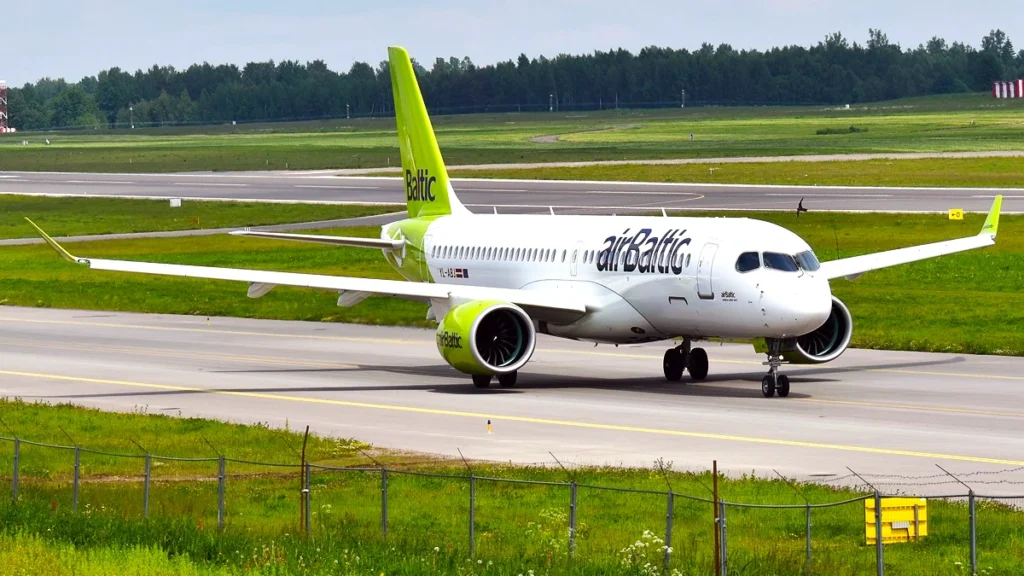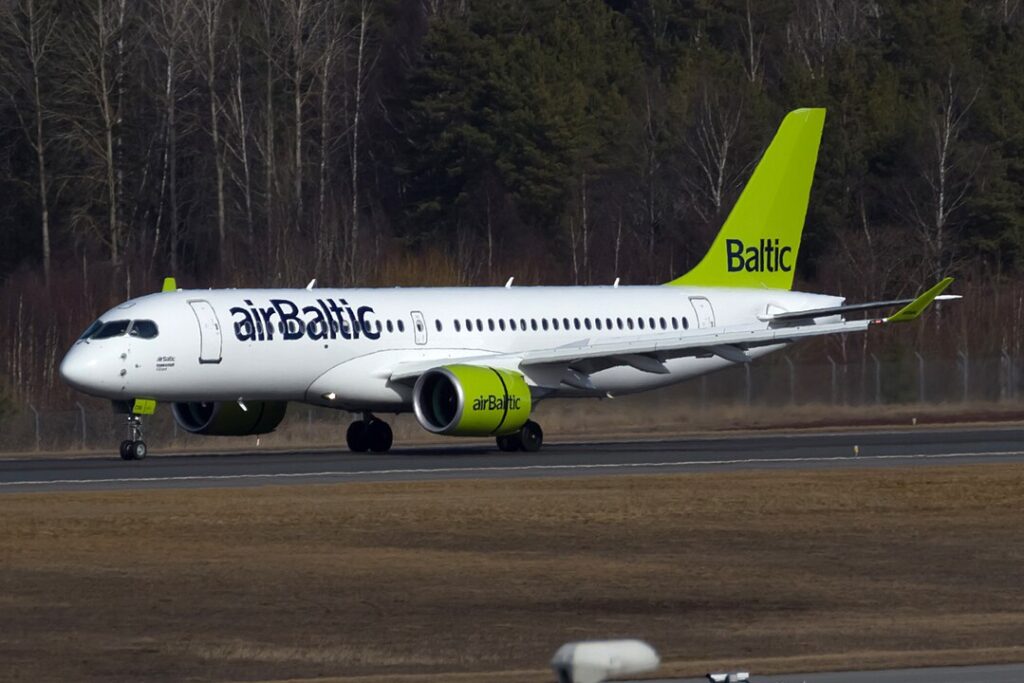RIGA- AirBaltic (BT) cancels 4,670 flights due to engine maintenance delays in summer 2025, causing disruptions in European aviation.
Prolonged engine repair schedules by Pratt & Whitney have caused a disruption in airBaltic’s Airbus A220-300 fleet operations.

airBaltic to Cancel 4,670 Flights
The maintenance bottleneck will halt numerous A220-300 aircraft far beyond 2025, forcing airBaltic to make significant network changes. The airline’s restructuring impacts 40 routes, with 19 being completely suspended and 21 having lower frequency.
This operational reduction will affect 67,160 people who had booked summer travel through airBaltic’s network.
Even with these difficulties, the Baltic carrier remains committed to regional connections. The airline continues to serve over 70 destinations in Europe and beyond, ensuring vital air connections between the Baltic States and important global destinations.

Global Supply Chain Issues
AirBaltic is facing unprecedented operational challenges as global supply chain disruptions and maintenance constraints necessitate widespread flight modifications. To alleviate the effect of these cancellations, the airline has implemented thorough customer assistance measures, including offering affected passengers prompt rebooking choices and full refunds.
The company creates several support channels for concerned travelers. Passengers may now handle their disrupted bookings via airBaltic’s online booking management system, which allows them to select alternate flights or receive refunds. Additional support is still accessible through the airBaltic Call Centre and third-party booking systems.
Despite these problems, airBaltic continues to operate its wide network of 130 routes. The airline continues to operate from its principal hubs in Riga, Tallinn, Vilnius, and Tampere, as well as seasonal flights from Gran Canaria. These routes connect travelers with destinations in Europe, the Middle East, North Africa, and the Caucasus.
The airline’s hybrid business model blends traditional network carrier services with cost-effective operational efficiencies. This strategy has helped airBaltic become the dominant carrier in the Baltic region, as well as one of Europe’s fastest-growing airlines.
The company’s current fleet comprises of 49 Airbus A220-300 aircraft, which are managed by more than 2,700 aviation personnel.













Leave a Reply